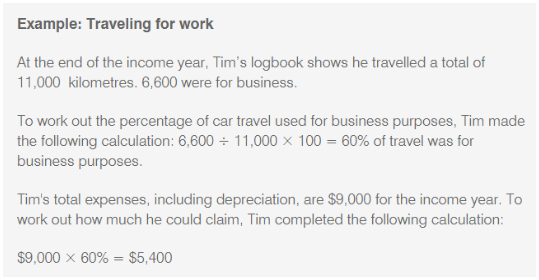It’s tax season! We get a lot of questions around this time of year about what on earth to do about taxes, so we pulled aside Chris Emmanuel, Performance Accounting Coach and Principal of Cashflow Networks. The man knows his stuff, so Blys facilitated a therapist Q & A session with him to answer some of the biggest questions that Blys massage therapists had. As always, we know that taxes are confusing for everyone. We highly recommend getting a personal accountant who you can ask about your individual situation. If you don’t already have an accountant, you can simply contact Chris from his website. We also need to clarify that Blys is in no way a legal firm and that the information in this blog is not intended as legal tax advice. Our information comes in part from our time with Chris and also from the Australian Taxation Office website. Remember to do your own research! As they say,
“Tax planning shouldn’t start at the end of the year. It starts at the beginning and continues the whole year.”

Tax Deductions For Massage Therapy
Knowing what counts as a deduction, what doesn’t, and what would be the best way to keep track of all of those purchases throughout the year are the most asked questions among therapists. So, here’s your guide to deductions.
Q. “Can I deduct car maintenance / depreciation / mileage?”
Chris: “Yes. There are specific ways to claim these things as deductions, so ensure you choose the best method for yourself. You can claim up to 5,000km the amount of kilometres you drove during the tax year. “To do this, you need to keep a logbook of your kilometres, so be pedantic if you want to claim! You can receive up to 66c per kilometre in dedications, however if you claim per kilometre you don’t get any extra car deductions. As a general rule, you should keep a logbook if you are driving more than 5000km per year.” “A logbook must be kept for at least 12 consecutive weeks. During these 12 weeks you will need to log every trip taken, work and non-work related. To do this, write the date of each trip with the correct odometer readings at the start and end of the journey. You should also include a little description of the purpose of the trip. You must have written evidence of your fuel and oil costs, or odometer readings. Once you have at least 12 weeks logged, you can average this amount throughout the year. This average can be used for the next 5 years provided your income does not differentiate more or less than 20%.” “Keep Google Maps location history on as extra proof of drives if ever audited.” 
Q. “What about tolls / parking / public transport?”
Chris: “Fortunately, tolls are relatively easy to monitor assuming you’re being billed to the correct address. The easiest way to go about this is to track your yearly work tolls using your driving logbook. Alternatively, you can review your tolls at the end of the year and correlate this to your job history log.” “In terms of parking, it’s a good idea to take photos of your parking receipts and immediately log them into your bookkeeping app. Noting where and why you were parked there is also a good idea for the record.” “Tracing your public transport charges, like Opal Cards in NSW, is best done by using a separate transport card. Simply label it as ‘Work’ on the transport website and you’ll easily be able to distinguish your work charges. Just ensure that you don’t mix up your cards as that will definitely complicate things down the line. Separate cards will ensure you have an accurate log of how much money you’ve spent by the end of the year.”
Q. “How about my equipment / clothing?”
Chris: “You can claim equipment that you’ve used during your massages. Clothing is not covered unless it has a business logo on it and is mandatory uniform by company standards.”
Q. “Are CPE courses/textbooks/workshops included?”
Chris: “Yes! All courses, workshops, and training material related to massage is a tax deductible expense.”
Q. “What about my personal maintenance massages?”
Chris: “If you want massages that you receive to be considered a tax deductible expense, simply go to a doctor each year and have them write you a note saying that you need to get maintenance massages because of your job.” Note from Blys: Keep in mind that as Blys therapist, you get exclusive discount on all massage you book through Blys.
Q. “Are rent / bills / laundry deductions applicable?”
Chris: “Obviously, you must be renting not owning. To be eligible to claim a portion of your rent you cannot be making 80% or more of your income from one single client. You also have to have a specific designated space where you do your business. Sorry, doesn’t count if you sit on the couch with your laptop to do your admin.” “If you have a separate office, that’s the best. A spare bedroom with a desk in it could work as well. If you don’t have any spare space, then you’ll need a desk set up in a corner somewhere that’s meant just for admin/office work. Then, you calculate the size of that business designated space; the office, or just how big the corner of the room with the desk is. Take that measurement, and figure out what percentage it is of your total square meters of the entire house/apartment/etc that you’re renting. That percentage is the amount of rent that should be tax deductible.” “Bills for internet, mobile phone, electricity, water, gas, etc. are all subject to either full or partial deductions. Talk to your accountant to understand more about how to calculate the amount.” “As massage therapists, you are constantly washing towels and/or sheets. Some of those laundry expenses are deductible. If the load is work towels/sheets only you get $1 per load, if mixed with personal clothes you get $.50 per load. If you don’t want to keep a log of your laundry loads throughout the year, you can take a portion of your water bill.”
Q. “What business software can I claim?”
Chris: “If you pay a monthly fee for a music streaming service that your clients listen to during their massage, this qualifies as a business deductible expense.” “Bookkeeping software and apps that help you keep track of your business expenses, invoices, income and the like are also deductible.” “Any amount that you pay for software that helps you get jobs, such as the Blys app, is tax deductible. For Blys, this is the fee that Blys keeps for each job.”
Q. “Can you tell us about small business immediate write-offs for items?”
Chris: “As long as your gross income is less than $10million, the item costs less than $20,000, and that item was fully installed and ready to use in the income year you are claiming it for, these items can be immediately deductible. This includes things such as phones, laptops, even a car. As long as you need these things for business, all or part of these items can be tax deductible expenses.”
A Note From The Pro On Record Keeping
There are a number of ways to keep track of your expenses, jobs done, income earned, kilometres driven, and everything else you need to track for business purposes. Here’s a list of a few of the most recommended by Chris.
- ATO – “The ATO has their own app. It’s free and provides options that keep track of driving trips and business expenses. You can even keep a logbook on the app.”
- Quick Books, Self-Employed – “This app costs $5.49 a month and offers the ability to connect your bank account. You can go through each expense to determine if it is a personal or business expense. You can select from a bunch of different categories to sort expenses into and filter by date or category. You can also attach receipts and add notes about individual charges so you know exactly how it was business related.”
- Xero – “This app is the most recommended by some tax accountants. However, they charge $25mo for the cheapest most limited plan, and it’s $50mo to get the options you would actually need to run your business.”
Tax Questions Massage Therapists Had for Chris
Q. “As sole traders, do we need to pay our taxes every 3 months or just once a year? How do you set that up?”
Chris: “If you make over $4000 in business income, or if you owe more than $1000 in taxes you’ll need to pay you taxes quarterly. The ATO will set it up for you automatically to pay every 3 months once you file your taxes as a sole trader.”
Q. “Do we need to register for GST?”
Chris: “Only if you make more than $75,000 gross income per year.”
Q. “How much should we be setting aside for our taxes?”
Chris: “Each case varies, but a good rule is 10-20% of your total income earned each week.”
Q. “What if we pay into a Super? Is any or part of that tax deductible?”
Chris: “There are two kinds of super: one is tax deductible, the other isn’t. You’ll need to find out which kind of super you’re paying into when you start. “There’s also a thing called Super co-contributions. We highly recommend you find out more about this. Super co-contributions help eligible people boost their retirement savings. If you’re a low or middle-income earner and make personal (after-tax) contributions to your super fund, the government also makes a contribution (called a co-contribution) up to a maximum amount of $500.”
Q. “When I’m doing my tax, do I put Blys as my payer?”
Chris: “No. Blys is a software company that facilitates massage appointments between the clients and the therapists. The client pays the therapist the full amount of the job (e.g. $99 for 60min), then the therapist pays Blys % of the total amount as part of the license agreement for using the Blys platform. So, Blys is in no way an employer. You are a sole trader, and your taxes should be filed under your own sole trader ABN. The percentage that you pay to Blys is completely tax deductible as a business expense.” We know that taxes can be a really difficult to figure out and lead to a million questions. We have to give a massive thank you to Chris Emmanuel over at Cashflow Networks for answering the therapists’ questions. If you have questions for Chris, please feel free to reach out to him directly.
Disclaimer: While Blys strives to present information as timely and accurately as possible, we are not providing official legal advice and encourage readers to seek professional legal advice from a credited tax accountant. Sources:
- ATO, Australian Government (2018) <https://www.ato.gov.au>
- Emmanuel, C. (2018) Blys Therapist tax Q&A session <http://cashflow-networks.com>
